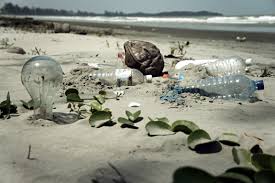Green Watch
Poor Research Leads Environmentalists to Make Strawman Arguments


Five hundred million. That’s the number of plastic straws used daily by Americans, according to environmental groups that want to scare Americans into giving up the small piece of plastic. Cities like Seattle and San Francisco have already made strides to ban this product from restaurants and bars. Starbucks, the Hyatt hotel chain, and even American Airlines joined the bandwagon in an effort to “save our oceans” from plastic straw pollution.
With all of the proactive steps these companies are taking, you’d expect to see the extensive research behind that large figure—research done by experts with terminal degrees in their fields—but no.
It comes as the result of a science project completed by nine-year-old Milo Cress. Cress called three plastic straw manufactures and based this figure on their comments. This number, while common in today’s discussion, has never been peer-reviewed by legitimate scholars or replicated by other studies. Yet, organizations like Eco-Cycle continue to tout this “research” on their website, offering no evidence of their own to back up Cress’s results.
Left-leaning news outlets and environmental non-profits persistently continue to cite the 500 million figure despite its lack of hard evidence in their favor, openly purporting a flawed research number to the public about the impact of plastic straws on our environment. The Lonely Whale Foundation (LWF), co-founded by “Entourage” alum Adrian Grenier, is one of the many left-leaning organizations that have based their entire mission on this unsubstantiated claim.
The Lonely Whale Foundation is a project sponsored by a 501(c)(3) nonprofit organization called Social and Environmental Entrepreneurs (SEE), a fiscal sponsorship organization that essentially helps establish new organizations as “projects” under their non-profit umbrella. They provide operational support, handle human resources issues, and take on the tax-filing responsibility in exchange for a 6.5 percent cut of the project’s revenue. By accepting SEE’s fiscal sponsorship, the LWF reaps the benefits of a tax-exempt nonprofit, including maintaining eligibility for grants, without actually filing as a separate 501(c)(3). SEE has a list of big-dollar donors that are almost exclusively leftist, including: The Tides Foundation, George Soros’s Foundation to Promote Open Society and Open Society Foundation, and the environmental justice group the California Endowment.
LWF’s “Strawless in Seattle” campaign executive director, Dune Ives, says “We wanted to wake people up and make them feel really powerful, that something they did would make a difference.”
Making our planet a happier and healthier place for all creatures great and small is a noble goal, but will eschewing a straw make even a marginal difference? The plastic sippy-cup lids that companies will provide in lieu of plastic straws actually use more plastic than straws.
Technomics, a research and strategic consulting organization focused on the foodservice industry, has debunked this “500 million straws per day” myth as it found the amount to be closer to 172 million per day. That, while it may still seem like an outsized amount, is in fact, quite small in comparison to the entirety of plastic waste in the ocean. There are a couple of explanations for this.
One: more studies have shown that it is really plastic bags, microbeads, and abandoned fishing gear that cause marine animals harm—not plastic straws.
Two: Straws only make up roughly .02 percent of plastic waste in the ocean. This figure, when taking into account the total amount of plastic waste produced by the United States—less than roughly one percent —makes it hard to understand why demonizing a straw would do so much good.
More beneficial movements would be for companies to provide discount incentives for bringing your own bags like at Whole Foods, or for cosmetics manufacturers to use natural alternatives to microbeads like oats or brown sugar.
If you’re looking to be taken seriously in your efforts to save the planet you should avoid relying on a child’s unsubstantiated research and unnecessarily virtuous language. Instead, organizations like LWF should look to the legitimate research and come up with much more effective movements that would not only improve our oceans, but also Americans’ quality of life. Perhaps then they may be taken seriously by more than just their environmentalist echo chamber.



